Gerard Woodhouse tells horrifying stories about Liverpool - are they true?
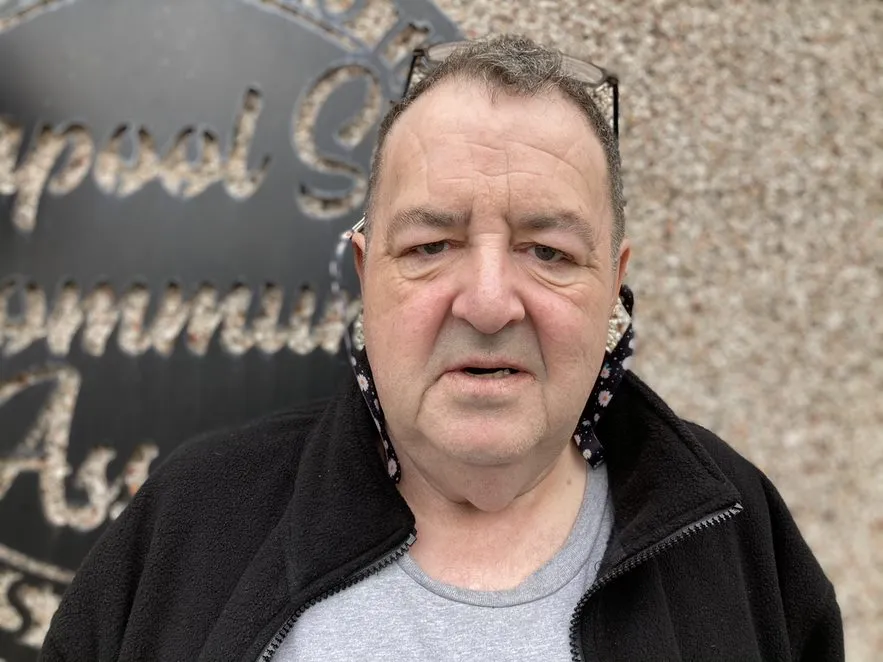
For months we have been trying to understand a man who is lauded by politicians and receives wall-to-wall coverage in the media
By Mollie Simpson and Harry Shukman
Gerard Woodhouse, the Liverpool councillor and prominent local charity boss, is sitting on a bench outside his office in Everton. Over a Diet Coke and a cigarette, he talks about the recognition due for his long career in charitable work.
“People say I should get the Freedom of the City,” he tells us. “People say I should get an OBE. I’ll shove them as far as they’ve got ‘em.”
Doth Woodhouse protest too much? His awards and newspaper clippings compete for wall space at his L6 Community Association, but Woodhouse insists that he isn’t in this for public recognition: “My reward is when a kid and mum come through that door crying and go out skipping,” he says, employing a phrase we will hear several times while reporting this story. “The prestige? If I wanted to do stories, I could be on Good Morning Britain every day.”
The L6 centre is a hub for people in need. It offers a food union, launderette, youth club, pensioners’ group, baby bank, school uniform service, and owns caravans in North Wales to send families on holiday. Woodhouse, for his efforts, has earned the praise of local MPs like Paula Barker (“simply amazing”) and Ian Byrne (“fantastic team”). Len McCluskey, the former head of Unite the union, once attended an event at the L6 with Woodhouse’s brother Tony, who is Unite’s representative on the governing body of the Labour Party. Joe Anderson, when he was mayor of Liverpool, said the L6 was “inspirational” and that it was “important to keep it funded”.
So far, Woodhouse has kept his charity well funded. In the past year alone it has received £600,000 from donors and organisations like the National Lottery and the Steve Morgan Foundation. In previous years, the L6 has taken four-figure donations from the Duchy of Lancaster, one of the Queen’s estates, and the Duchy of Westminster.
With that money, Woodhouse and his team have clearly done a lot of good in Liverpool. “We couldn’t manage if it wasn’t for him,” says Jill Wright, head teacher of Whitefield Primary School. Every week, Woodhouse’s team drops round packages of bread, jam, margarine and books to her school. In the course of reporting this story, we’ve heard from multiple people who say that L6 has been a positive influence in their lives or that people they know rely on its services.
In 2021, the Echo gave the L6 an award for “offering a lifeline to families in dire need”. Last week, Woodhouse was nominated again for another of the newspaper’s community awards – the ceremony takes place next month. Woodhouse says he feeds, clothes and takes care of thousands of families across the city, and as the cost of living crisis deepens, charities like the L6 will likely become more essential than ever.
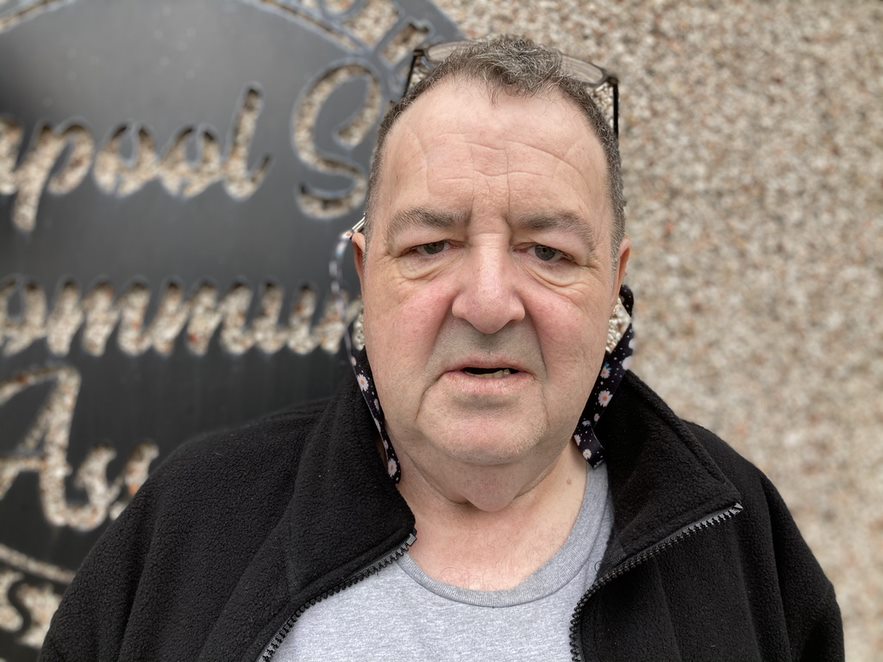
But Woodhouse is both an elected councillor and the head of a charity that receives significant sums of public money, including from local taxpayers via something called the Mayoral Neighbourhood Fund. As a result, the public claims he makes about what the L6 centre deserve proper scrutiny. As do the stories he frequently tells in the media about families he meets in Liverpool — including tales about mothers leaving their babies on maternity wards and households that have lived for years without a water supply.
Over the past four months, The Post has struggled to corroborate some of Woodhouse’s statements, even after conducting two in-depth interviews with him at the L6 Centre and giving him several further opportunities to fill in the gaps. We believe it is in the public interest, and the interests of Liverpool’s residents, to report some of these discrepencies, so our readers can better understand an influential local man and the organisation he runs.
Woodhouse emerges from our reporting as a complex character — a man whose charity is helping many poorer families in the city but who, for whatever reason, feels the need to exaggerate and embellish the work he is doing. He also seems to be someone who is willing to tap into deeply-embedded stereotypes about poverty in Liverpool in order to raise money and boost his public profile. For his part, Woodhouse accuses us of lying about the L6 centre and “trying to pull us down".
Ten grand per story
Woodhouse walks out of his office in the L6 centre and tells us to call him by his first name. “It’s Gerard! I’m not ‘councillor’,” he says, offering us coffee.
It’s a muggy morning in July, and Woodhouse is showing us around his operation. He’s nattily dressed in trousers and shoes by Hugo Boss. His t-shirt is Ralph Lauren. Gold bracelets sparkle on both of his forearms – gifts from his mother. There are bags and boxes and piles of stuff all over the centre, waiting to be delivered. Loaves of bread destined for a school are stacked up in one corner, miniature bottles of liquor are packed up for a raffle in another. There are Lego kits, slow cookers, books, calendars, printers and perfumes, not to mention two shipping containers crammed with baby kits and school uniforms.
The main building carries reminders of Woodhouse’s media appearances. “It’s the only place — ever — that’s been on the One Show six times,” Woodhouse says. “To get on it once is an achievement. Six times, we’ve been on it.” He explains that his charity has won “national awards, diversity awards: you name it, we’ve won it”, before adding in a stage whisper: “I’m not interested in them. It doesn’t come with money.” He then repeats his catchphrase, the one we heard the first time we visited about kids, mums, entering doors weeping, exiting skipping.
Woodhouse may be a regular fixture on the BBC, but the outlet in which his name features most frequently is the Echo. Some readers might remember a detail-packed story about him from 2018, in which the paper reported that he had been suspended from the Labour Party for 31 days after after a recording emerged in which he could be heard calling fellow councillor Kay Davies a "lazy cunt". In the same story, the Echo reported that Woodhouse had lost 460,000 Twitter followers in one weeekend after the social media site announced it was deleting millions of spam accounts. Woodhouse currently has 200,000 followers on Twitter, ten times more than Liverpool's Mayor Joanne Anderson, but, implausibly, he continues to maintain that he has never bought fake followers.
Since then, Woodhouse has become a valuable and prolific source for the Echo. If you’ve been reading the newspaper recently, you might be forgiven for thinking he had a hotline to the editor. By our count, it has run 11 stories about him so far this year, many of which repurpose his social media posts as news articles.
Part of what makes Woodhouse such a good interviewee is that he tends to produce astonishing stories of poverty. When a newspaper, TV programme or radio show needs someone to describe the cost of living crisis, Woodhouse is the perfect talking head. In a 2020 interview with The B-Side Beat, a community news site, Woodhouse claimed that the pandemic had impoverished families to the point that children were having to walk around with bare feet. “They haven’t got shoes on them,” he said. “It’s just unbelievable. I’ve never seen anything like it in my life.”
One article the Echo published last winter described how Woodhouse went on a house visit to find a nine-month-old baby wrapped in a coat and hat a week after the heating went off. It was “colder than a meat freezer”, he said. Another recent Echo piece reported that Woodhouse found a family of seven children in Anfield “sleeping on urine-stained mattresses in a house with missing windows, a door that wouldn't lock and a boiler that hadn't worked in years”.
In March, the Echo ran an article about Woodhouse’s visit to a single mother of two. It went viral. Woodhouse described how one of her daughters let him in, where he witnessed a scene of Dickensian hardship. “The mum had bread on a knife holding it to the gas fire and a candle holder heating some beans,” he said. The sight, according to Woodhouse, made him vomit then weep uncontrollably. To LBC, he said the mother let him into the house, although to the Echo he said it was her daughter who answered the door.
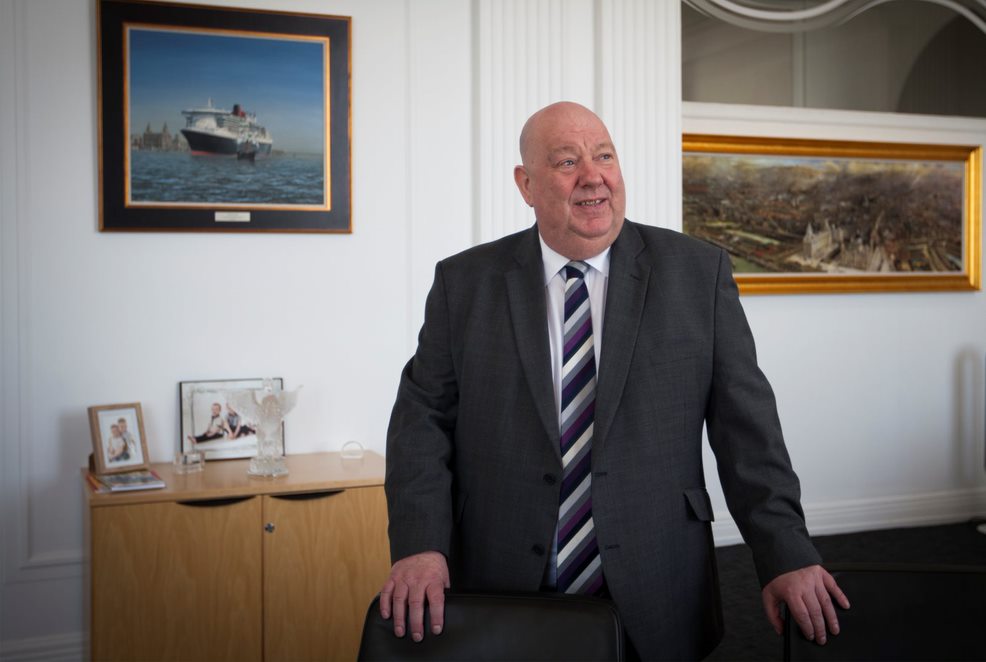
Sat in his office, surrounded by stacks of paperwork and shelves groaning with children’s toys, camera equipment and toastie makers, Woodhouse cracks open a can of Diet Coke and tells us another jaw-dropping story. This one is about a woman he claims to have helped after seeing her terrible living conditions. “She’d had no water for four years, for starters,” he says. Four years, we exclaim. What did she drink to stay alive? Woodhouse does not answer but instead tells us she went to Manchester once a week to stay with relatives. Again, we ask him what she drank — how could she live without water for so long? Woodhouse ignores the question. Then he says that this woman also had no gas.
He takes a folder from a shelf behind him and passes us blurry photographs of a house that must have belonged to a compulsive hoarder. The pictures show old juice cartons piled up to the ceiling, a living room is covered with so much junk like cardboard boxes and gardening equipment that it obscures the floor. When Woodhouse saw the house, it again made him vomit. He says that thanks to his support, the woman was able to turn her life around.
Apparently she now has a clean home, proper care and a job. Even her Alzheimer’s – which Woodhouse says she was beginning to suffer from – started to abate. This is confusing: Alzheimer’s is an incurable disease. We ask to speak to this woman, but Woodhouse repeatedly tells us this would be impossible. “She wouldn’t,” he says. “No. I know that for a fact. She’s moved on. I could speak to her but I doubt it.” We never hear back, and aren’t sure what to make of this tale. There are certainly hoarders in Liverpool — but what about the house colder than a meat freezer? The place with missing windows? The children without shoes?
Woodhouse says he stands by the truth of these stories and told us in an email on Friday he has “no intentions of introducing you to people”.
Trevor Lathan, former rector of Walton Church, says he did not encounter comparable cases in twenty years of managing a nearby parish. “If these are comments made by Gerard, he may have come across these people,” he tells us. “I think they’re a bit far-fetched.” A member of staff at a different food bank says Woodhouse’s tales seemed “extreme”, adding: “Liverpool social services would not let children live in a house where the conditions were that bad.”
A councillor who works in a welfare charity tells us: “I have a searing disbelief about these claims.” Labour politicians we spoke to seem reluctant to openly criticise a colleague, but several expressed concern about the stories Woodhouse tells. One councillor is concerned that the Echo stories are “poverty porn”, especially as they tend not to mention whether Woodhouse alerted healthcare and social services after his visits. “Some of the people Woodhouse talks about, he should be getting them referred immediately, not going to the media,” the councillor says. A third councillor, who has represented some of the most deprived wards in the city during their career, flatly tells us: “I’ve never seen people without their shoes.”
These tales have an obvious and measurable utility for Woodhouse. Tapping into the widely-held view of Liverpool as a city defined by grinding, almost unbelievable poverty is core to his fundraising efforts.
Every time the Echo writes about him, it includes a link to his crowdfunding website, which attracts, by his estimate, “seven, eight, ten grand per story”. Woodhouse says articles in the Echo deliver more money than TV hits (a June appearance on the One Show netted £4,500, he says) because a local audience feels a stronger connection to his charity than a national one. Donations to a GoFundMe are more convenient than grants from a foundation, he adds, because the money isn’t allocated for specific purposes.
Some of the Echo’s articles about Woodhouse are curious from a journalistic perspective because they tend to report his claims without interviewing the families he refers to. It’s unusual for a newspaper to run a human interest story in which the subject is not interviewed. A reader would want an explanation – confidentiality reasons, for instance – as to why a story is being told by a second-hand source. Alternatively, a reporter might describe their efforts to verify the story, like speaking to an authority figure for confirmation.
And yet in eight of the Echo’s eleven online stories about Woodhouse this year, the newspaper appears not to have made these checks. This approach is unfortunate, and in the past has led to some implausible articles being printed. In 2019, Woodhouse claimed that the Universal Credit rollout was so shambolic that new mothers were leaving their babies on maternity wards because they couldn’t afford cots and prams. “The baby is left in the hospital when the mum goes home until a social worker or the NHS find provisions,” Woodhouse said. The article ran in the Echo, having first gone in the Mirror (both newspapers are owned by the same London-based media company, Reach Plc).
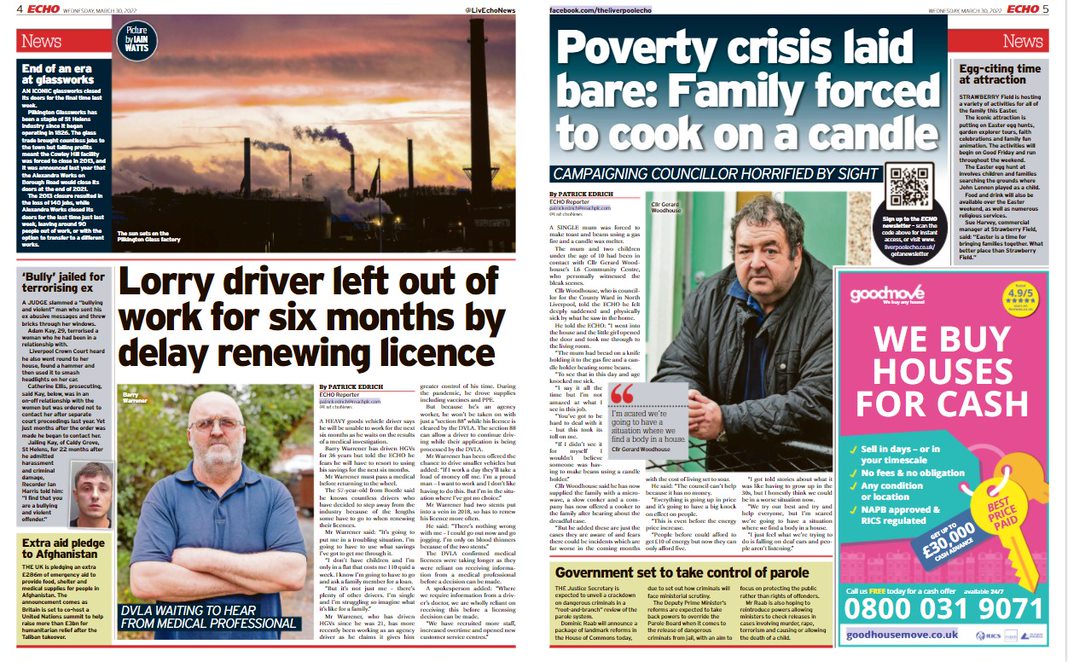
When we meet Woodhouse at his charity on Queens Road, he reiterates this story about babies. He adds that mothers have to leave their newborns for “two to three days” because of a law that forces them to buy brand new car seats that they cannot afford.
However, this is not a trend recognised by Liverpool Women’s Hospital, the main provider of maternity services in the city. At our prompting, the hospital’s spokesman Andrew Duggan researched the article from 2019, and concluded: “Babies being left in the hospital would never happen so there has possibly been some misinterpretation there from when this was discussed a few years ago.” Some struggling mothers may turn to charities to get hold of essentials, Duggan told us, but he was emphatic: “It never gets to the point where women leave babies at hospital.”
Contrary to what Woodhouse says, there is no law that makes parents buy new car seats, merely NHS guidance advising against using old ones for safety reasons. When we asked Woodhouse about this story, he said in an email: “I stand by this we were told this by health visits and mum's to be.”
The Echo also told us it stands by the stories it sourced from Woodhouse, including the one about the mothers leaving their babes. A spokesperson said: “While reporting on difficult stories of hardship may make some people, including councillors, uncomfortable, we believe it is our responsibility to do so, especially during the cost of living crisis. We will continue to share stories which reflect the very real problems many people in our communities face.”
‘A detailed forensic review’
The L6 centre and its funding have been the subject of discussion among councillors in recent months. Liverpool has the million-pound Mayoral Neighbourhood Fund (MNF), and councillors get a chunk of that pot depending on how deprived their ward is to spend on worthy projects. As a councillor, Woodhouse has sent MNF money to his own charity, and some say he has encouraged his town hall colleagues to do the same. Over the last five years, the L6 has received almost £150,000 from the MNF.
Politicians have complained that this represents a conflict of interest and the issue — though not the L6 centre specifically — was highlighted in the government's best value inspection report, known as the Caller report. Councillors reported being leant on by a colleague to “authorise funding to an organisation where the individual worked or provided consultancy”. Some councillors believe the inspectors were referring to Woodhouse. Woodhouse told us he has never lobbied for money and that wards make their own decisions.
A council spokesperson told us: "From July 2020, the MNF process has been updated so that members with any interest are asked to make a declaration to that effect and are unable to make decisions about how funding should be allocated." The most recent year of MNF allocations (2020-21) shows that County ward, which Woodhouse represents, sent £35,740 to the L6. The allocations are undated, so we cannot determine if any of that money was sent after July 2020.
Kris Brown, the Lib Dem councillor who heads the audit committee, tells The Post he will be calling for “a detailed forensic review” of the L6 centre in response to our reporting. “We need to make sure our processes are sufficient so no abuses of the MNF take place in the future,” he says. “99 percent of all councillors do good jobs with their MNF and it is a valuable resource for our local communities but there are clearly cases where these funds are not showing to be of best value. I have no doubt that there has been a level of service given to some of the poorest communities at the L6, however we need to make sure everything is done by the book and that money is being accounted for properly.”
There’s no evidence that Woodhouse has acted improperly in relation to the MNF, but some of his online activity suggests he is someone whose stewardship of public funds should at least by scrutinised more closely by his colleagues on the council and the press. There are lots of little things that seem bizarre and hard to understand, like writing reviews of his own charity on Google (“Brilliant team, so much help” he once wrote, under his own name). Or like a 2019 social media image which shows an enormous fry-up alongside the caption: “This morning we delivered breakfasts for 20 families supporting people living in poverty”. A reverse image search of the photo reveals it was lifted from a two-year-old news article about a cafe in Birmingham that delivers giant full Englishes. When we asked Woodhouse about this, he said: “My staff and volunteers work there socks off and sometimes forget to take photos this was just put up as we had no photo.”
During the first lockdown in March 2020, ITV broadcast a story about the L6 centre delivering food to people in isolation. They interviewed a recipient named Miriam Van Vliet, and filmed her gratefully accepting two huge bags of food. “What a wonderful job they're doing, eh?” she told a reporter on her doorstep. But Van Vliet was no ordinary interviewee. She has been the chair of trustees at the L6 centre since 2005 –– a fact that was missing from ITV’s report. Woodhouse told us: “ITV were well aware who this person was she's a trustee not paid and was entitled to hampers like everyone else.”
A former volunteer of the L6 has accused Woodhouse of being obsessed with getting good media coverage. Last Christmas, this volunteer said they were packing presents for girls and asked members of staff why they weren’t packing up better gifts. “There were L.O.L. dolls and Barbie camper vans, and these staff were putting in one-pound pencil cases instead,” the volunteer recalls. “I asked why and the staff said, ‘We can’t put them in’. I asked, ‘What do you mean?’ And they said, ‘Gerard will go mad. He just keeps them here for when the One Show comes.’” Woodhouse says the story is “a lie” and “totally incorrect”.
Woodhouse’s apparent tendency to exaggerate and embellish raises questions about governance at the L6 centre, and the claims it makes to funders about its work, including Liverpool’s taxpayers. Every year charitable foundations and generous individuals donate hundreds of thousands of pounds to Woodhouse. The Charity Commission says that any organisation relying on public generosity has a duty to act with honesty and integrity.
Residents need to be referred by a housing authority or councillor in order to access the L6’s charitable services, so referrals are a good indicator of how many people Woodhouse actually helps. But it’s a metric we’ve found hard to pin down.
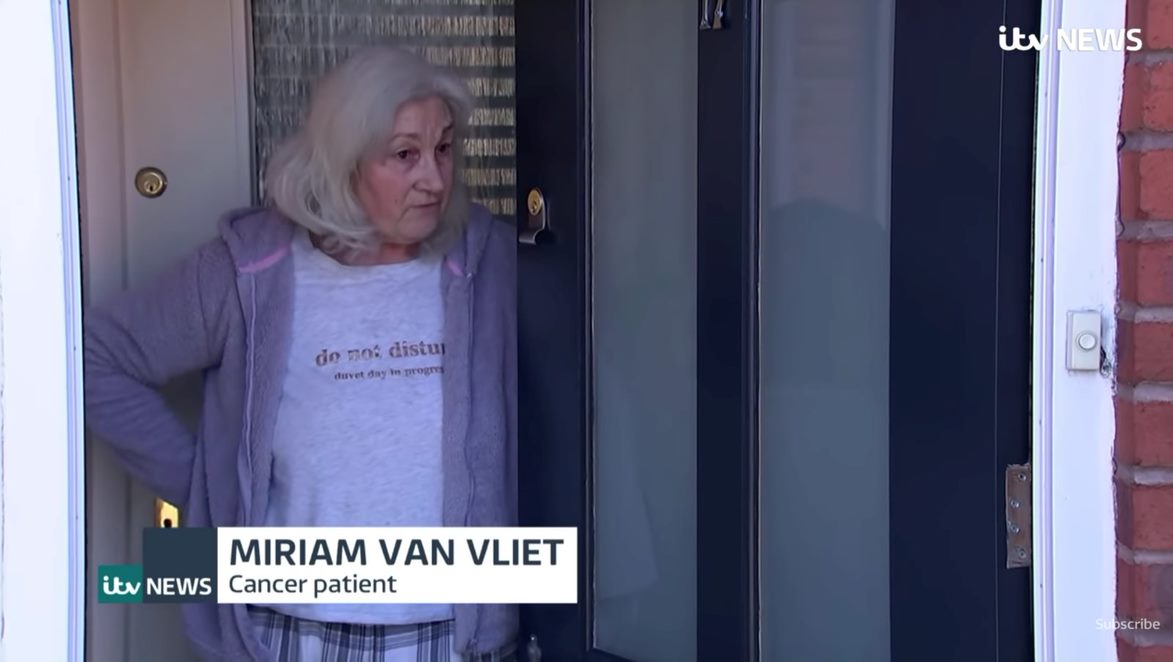
Reading back through Woodhouse’s interviews, it is clear that the number of referrals he receives is rising exponentially. On 18 November 2019, Woodhouse told the Echo he had received 100 referrals that year. Two years later, Woodhouse said he was getting 100-200 referrals a week. Six days later in an interview with the BBC, he said he was getting triple that amount, 350-700 referrals a week.
The true number of referrals is an important statistic to pin down, as the amount of people the L6 centre helps will influence how much funding it receives from donors and from the council itself. A scandal erupted in 2015 when Kids Company, a children’s charity in London, misled the media over the scale of its operations, leading to a flood of allegations that ultimately shuttered the operation.
When we first meet Woodhouse in May, he tells us: “I’m not bragging about it but we had 72,000 referrals at Christmas. Right through the city, we don’t do postcodes. I mean, 72,000 is, like, the amount of individuals. If you cut that down it’s probably about 29,000 families altogether.”
It’s an astounding figure – representing more than one in ten Liverpudlians. It would mean that during the Christmas period, around 2,700 people were being referred to the L6 centre every day, all handled by a skeleton crew of 11 paid staff and 25 volunteers.
At our second meeting in July, we ask Woodhouse again how many people he helped over Christmas last year, and this time he tells us he had 62,000 referrals, or 16,000 families. His answer changes twice more over the course of the day. Later on during our visit, he takes us from the garden benches into the upstairs office of Shirley Marshall, the L6’s head of operations and finance, to explain.
“Where are the referrals, girl?” he asks, opening a cupboard heaving with thick folders of referrals from housing associations. Woodhouse opens a ring binder in front of us. “There’s millions of them,” he says. We ask if it’s not a breach of confidentiality for us to be seeing these – but both he and Marshall say it’s not a problem.
Marshall hands us the charity’s annual reports from the past several years, except the one for 2021 which has yet not been written. So these reports account for a tenth of the city? “Yeah, well, the referrals come thick and fast,” Marshall says. “I don’t want us to be in any papers because then more people find out, and we’re inundated but we’re just that small charity.” Really, one in ten? “It depends what it’s for, and when it is,” she responds vaguely.
The conversation, which up to this point has been lively and congenial, becomes strained. We press Marshall on Woodhouse’s figures and ones in the report that claim to help thousands of people. “Just read all the stats in there,” she says. “You’re just going to have to read through these, babe.” As Marshall picks out sections from the report – spring events, youth club attendance – Woodhouse goes off on a tangent about refusing to bar disruptive kids from the centre.
Both seem evasive. We ask Woodhouse if he now thinks his Christmas stat – 72,000 referrals – sounds a bit much. “Yeah, it does,” he admits. So where did he get those numbers from? He does not respond. He exhales loudly, and nobody speaks for a moment. Marshall then says that she hasn’t yet done the figures for last Christmas, and asks us to continue the conversation away from her desk as she has work to do.
Across the corridor in his office, Woodhouse explains how he counts referrals. “Let’s say there’s five in the house: that’s five for the hamper, four kids for presents, so that’s then nine.”
But those are nine instances of help, we say. Not nine referrals. A referral would count one family, one time.
Woodhouse talks about laying on Santa grottos at schools. “So there’s 9,500 kids,” he says.
A child going to your grotto at a school may be someone you’re helping, but it’s not a referral, we respond.
“No, that would be counted in,” says Woodhouse.
Why would it be counted as a referral? That child hasn’t been referred for his services.
“Because we give them a present,” he says.
As kind as it is to give children presents at Christmas, counting them as referrals deliberately exaggerates the size of his impact. Woodhouse, however, is defensive. He says the figures he has cited are “just the numbers that we collate”. We say that the schoolchildren visiting his grottos surely can’t count as referrals – their names aren’t going into the folders of his filing cabinet. “A lot of them are,” he retorts.
Despite what he first told us – that over last Christmas he had 72,000 referrals – Woodhouse now says he actually meant instances, and “one family could have been 14 instances”. Under Woodhouse’s criteria the same child who, in the space of a month, attended the youth club, visited a Santa grotto, came to the food union with his parents, and went to a fundraiser event in town would be counted as four people.
“It’s been done honestly, and it hasn’t been done to sky-high the numbers,” he says. “We’re here to do a service and it looks like you’re trying to pull us down.”
We say an uncomfortable goodbye and walk out in silence. It suddenly seems amazing that the L6 has received such little scrutiny until now. Nobody thought to query Woodhouse in 2018, when he said he fed 90,000 people through his food bank, almost one in every five Liverpudlians? Or in Christmas that year, when he said he provided “every child” on his books with “£100-£450 worth of toys each”, which, given that Woodhouse claimed to have helped more than 42,000 children, would amount, roughly, to a haul of presents worth £11.6 million? Woodhouse disputes our calculations and says the majority of his toys are donated or purchased at discount from charitable organisations.
After our visit, Woodhouse texted us late at night to accuse us of “trying to destroy good people”. He has told us multiple times that he thinks we have an agenda to bring down the L6 centre. “I find it totally disgusting that you are trying to bring a charity down that is so well know in the city and alls were trying to do is help people,” he wrote in an email. He intends to make a formal complaint to the police, and has been in touch with “the Press Complaints”, who he said provided him with legal advice on how to pursue a claim against us. Who exactly he spoke to remains shrouded in mystery. After all, the Press Complaints Commission – if that is indeed who he meant – shut down eight years ago.
The thing that stays with us, as we drive away from our final meeting with Woodhouse, is one question: Why does he exaggerate so much? It doesn’t make sense — his charity is a lifeline to some desperate people. When we visited the L6, a single mother arrived to use the food union and left laden with groceries. The headteachers of Whitefield Primary and St Francis de Sales beamed when Woodhouse’s van showed up. There must be a decent number of families, pensioners and kids who come through the L6’s doors and do, as Woodhouse says, leave smiling. There are plenty who believe the L6 does praiseworthy work within the community. So why overstate the stories and the statistics?
Update on 26th August, 2022: An earlier version of this story featured a quote from an academic. The Post posed questions to an expert about representations of poverty in the media — they mistakenly did not specify that this article was about Gerard Woodhouse or the Liverpool Echo. As such, the expert has requested for their quotes to be removed. We regret the error.
To get in touch, email mollie@livpost.co.uk or harry@livpost.co.uk. We have disabled comments under this post.
Join The Post's email list to get stories like this in your inbox every week

Comments
Latest
Ghosts, gangsters and giving Liscard a chance
Trust in vaccines has fallen post-COVID. Now Knowsley has a measles outbreak
A Liverpool developer became a Dubai crypto kingpin. Now he’s accused of defrauding investors out of $400 million
Is Liverpool on track for net zero by 2030?
Gerard Woodhouse tells horrifying stories about Liverpool - are they true?
For months we have been trying to understand a man who is lauded by politicians and receives wall-to-wall coverage in the media